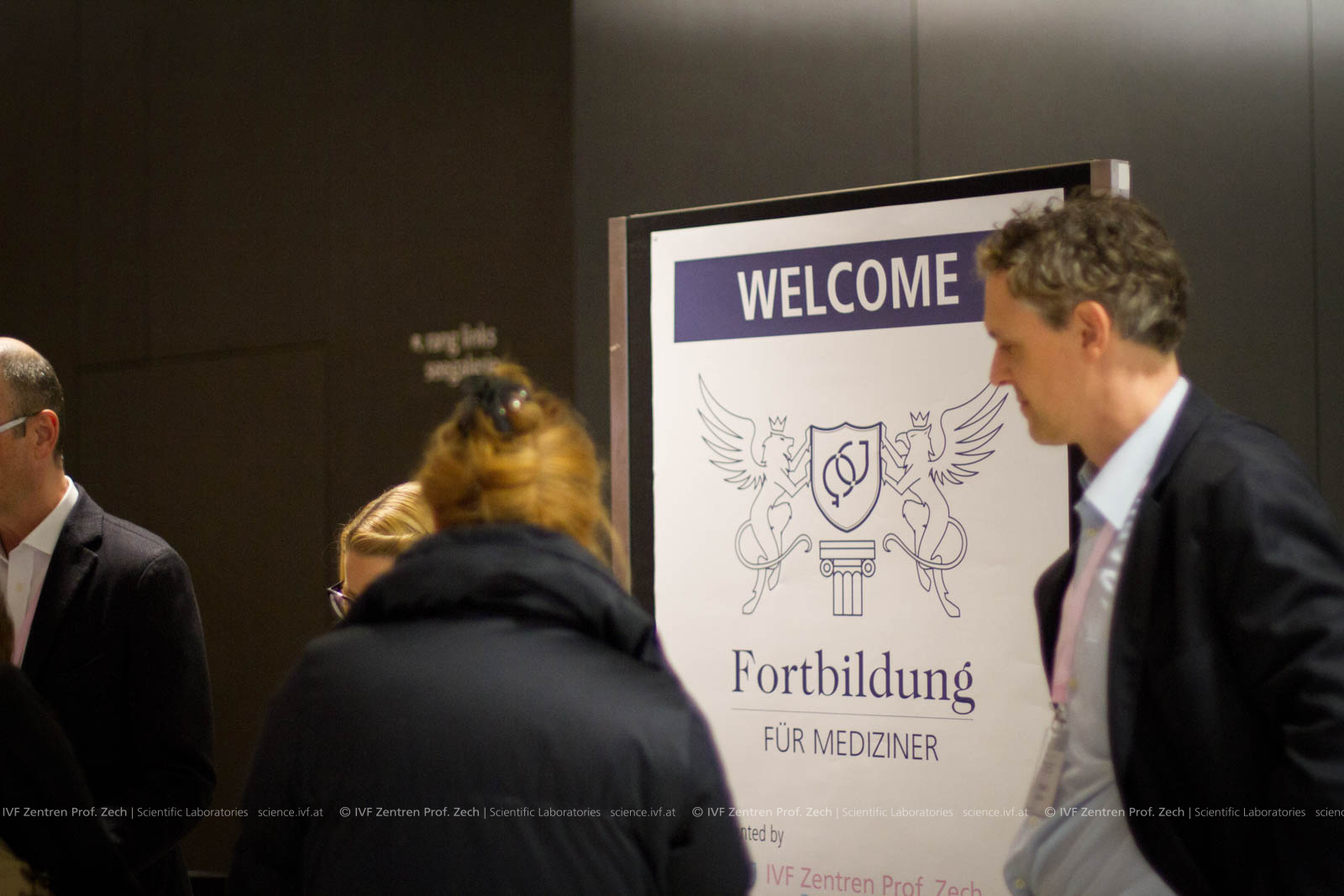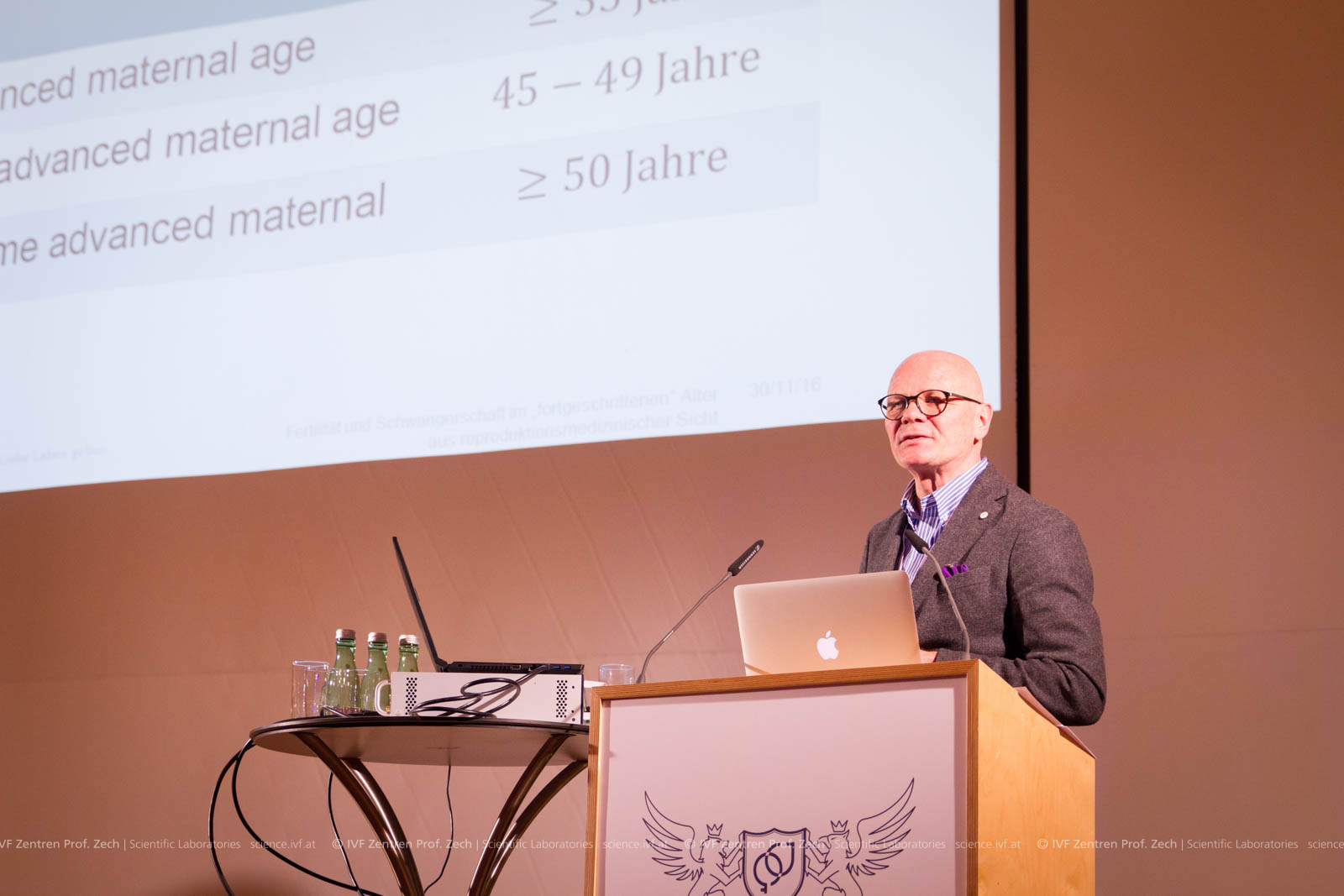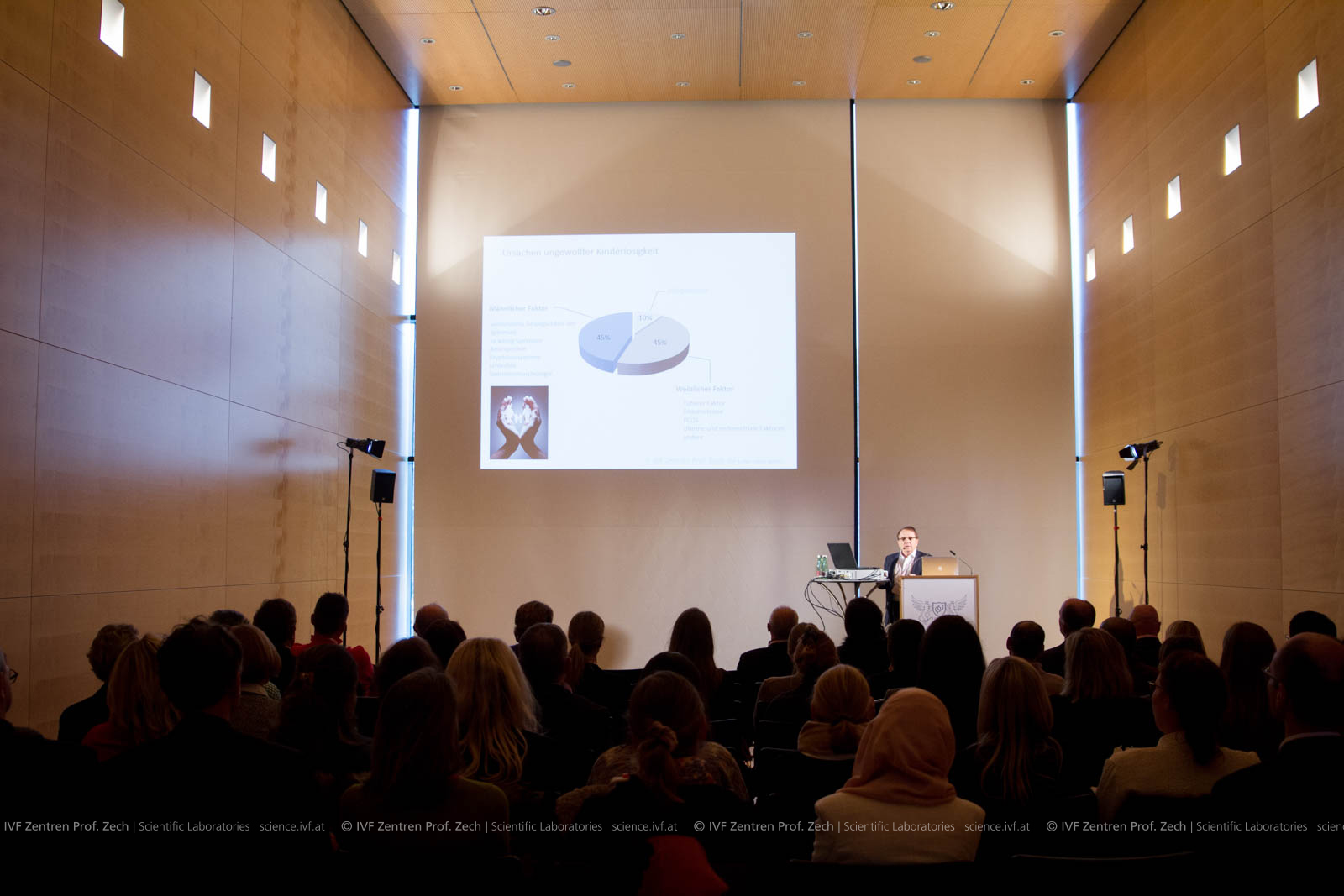It is not only the term itself but also the definition of “advanced age” in connection with the desire to have children which gives rise to numerous discussions.
In English speaking countries the term “advanced maternal age” is most commonly used for all women aged 35 or more at the time of having their baby. Childbearing in women aged 45-49 years is referred to as “very advanced maternal age” and “extreme advanced maternal age” is used for those women giving birth to a child at the age of 50 or older.
The fact that today there are more and more women choosing to delay motherhood has a major impact on the number of children per women/couple, thus also affecting demographic developments. The assessment of the fertility potential is thus essential for being able to realistically judge the probability of success with IVF treatments.
I have recently addressed this subject as a lecturer of an international educational seminar for gynecologists in Bregenz. Under the heading “Fertility and Advanced Maternal Age from the point of view of reproductive medicine”, I pointed out that fertility starts to decline for women from about the age of 30, owing to the steady decrease in a woman’s total egg pool and at the same time a rising number of poor quality eggs. Consequently, this leads to an increased risk for genetic diseases, a higher probability of miscarriage and limited chances for a successful pregnancy. This even applies to women between 35 and 39 years, but holds true particularly for women aged 40 and older. That is why I thought it was particularly important in my lecture that I provided concrete recommendations and tangible solutions.



Assessment of the couple’s situation after only 6 months
On the one hand, if a couple beyond the age of 35 has failed to conceive a pregnancy, despite trying their best, they should be prepared to undergo medical examinations after trying for 6 months (as against 12 months in women under the age of 35 years) in order to investigate the possible causes of the infertility (Fallopian tubes, oocytes, sperm, hormones etc.).
On the other hand, after age 40, the chances of getting pregnant with the help of hormonal support are very low. In this case, the couple should be provided with information on IVF/ICSI treatment. This is all the more important in view of the fact that, according to relevant literature, a proportion of these women (especially if they have already been diagnosed with impaired ovarian function) will reach menopause within five to six years. From the age of 45 onwards, the chances of achieving a pregnancy (below 15 %) and giving birth to a baby (lower than 2 %) decrease drastically even in women undergoing IVF/ICSI.
Fertility Preservation and Egg Donation
We therefore discussed possible solutions to the problem, i.e. treatment options offering the best prospects of getting pregnant and having a healthy baby even in women over 44 years of age. If, before reaching the age of 35, a woman chooses to delay motherhood (for example due to professional reasons or because she has not found Mr. Right yet), freezing her eggs for fertility preservation might be an option.
If no “precautions” have been taken, egg donation represents a promising alternative for women from the age of 44 onwards, achieving pregnancy rates of about 60 % (details on medical indication, legal framework as well as on the procedure and possible risks are discussed during the personal consultation with the doctor).
In concluding, I want to mention that there is no guarantee of a successful outcome with any fertility treatment. Due to intensive research in the field of reproductive medicine and development of new techniques, the chances of achieving pregnancy, also with regard to female age, are, however, notably higher today than ten years ago. Early diagnosis or fertility preservation as well as an individually tailored therapy are crucial here.
Links:
» Social Freezing / Medical Freezing – Oocyte preservation
(Topic-Special | https://www.fertility-treatment-blog.com)
» Fertility treatment with egg donation
(Topic-Special | https://www.fertility-treatment-blog.com)
» Continuing education for medical professionals
(Start page | https://medical-training.ivf.at)
(Start page | https://www.fertility-treatment-blog.com)
(Page | https://www.fertility-treatment-blog.com)
















